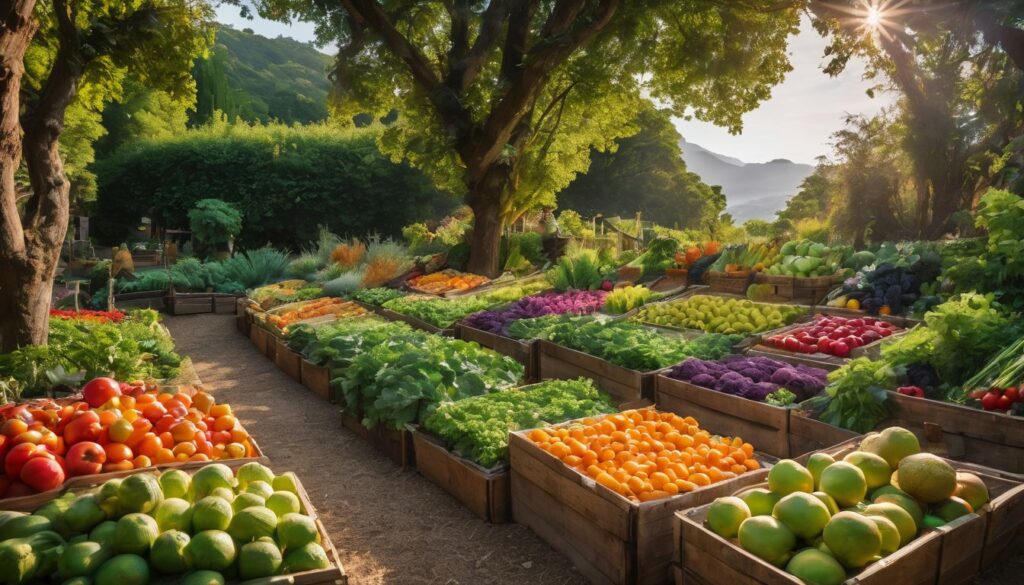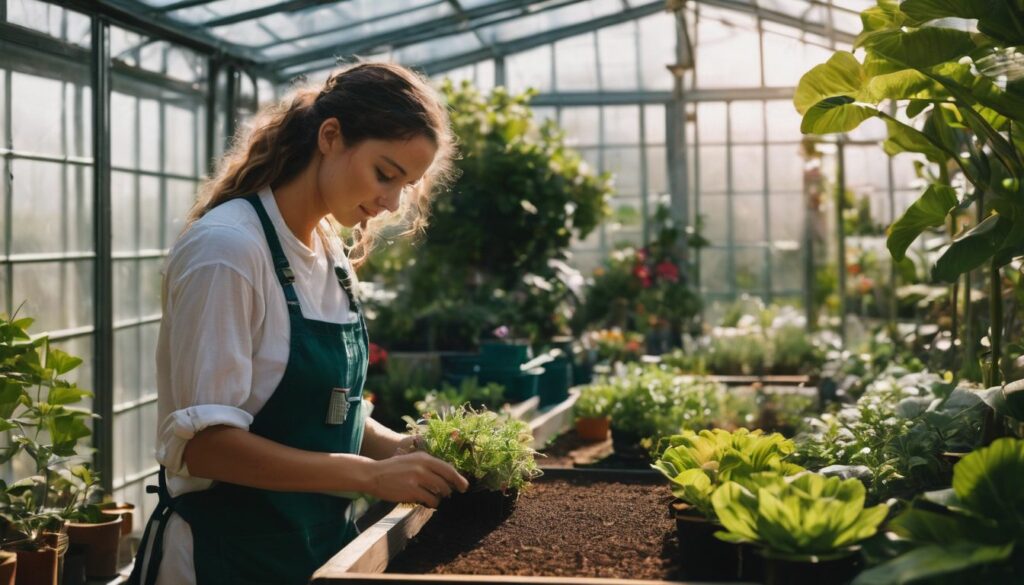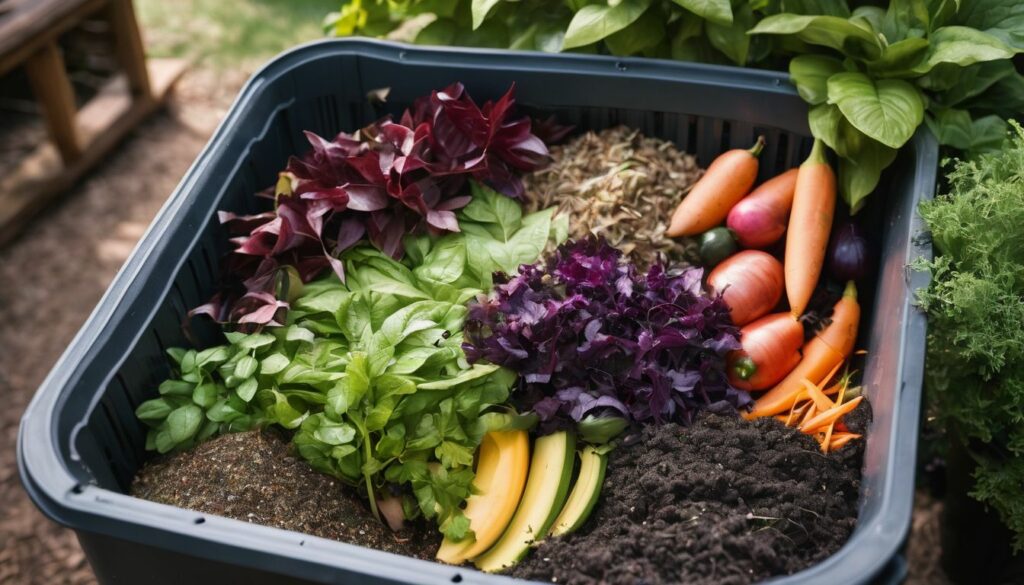Ever find your curiosity piqued by the notion of living off the land, nurturing your own crops and playing a hands-on role in providing for your needs? It seems to be a common thread these days – heck, it sure caught my attention! The age-old practice of homesteading is experiencing a renaissance among folks striving for self-reliance and a more authentic connection with Mother Nature.
So hold onto your sustainable hats, as we delve into the ins and outs of being a homesteader, you may just discover an irresistible desire to embrace green practices for an abundantly rewarding lifestyle!
Key Takeaways
- Homesteading originated as a government policy in the 19th century, offering settlers free land to encourage westward expansion and agricultural development.
- Homesteading is a social movement and economic choice that emphasizes self-sufficiency and sustainable living.
- Homesteading encompasses practices such as subsistence agriculture, home preservation, and small – scale production.
- Reasons for homesteading include personal fulfillment, self – sufficiency, and environmental sustainability.
The Origin and Evolution of Homesteading
Homesteading originated as a government policy in the 19th century, offering settlers free land to encourage westward expansion and agricultural development. Over time, it evolved into a social movement and economic choice that emphasizes self-sufficiency and sustainable living.
Historical government policy
The Homestead Act of 1862 was a big help in the past. The U.S. government gave away land for no cost. Each man got 160 acres of land to live on and farm. This law made many people move west to start new lives as farmers on their own land.
It helped grow towns and farms all across America’s western lands.
Social movement
Homesteading is not just a personal choice, but also a social movement. It has gained popularity as more people seek to disconnect from modern society and embrace a self-sufficient lifestyle.
Homesteaders have a strong sense of responsibility towards the land they inhabit and consider themselves stewards of the environment. They prioritize sustainable practices and reducing their ecological footprint.
Through homesteading, individuals can reconnect with nature and return to simpler, traditional ways of living. The Homestead Act of 1862 played a significant role in encouraging westward expansion and settlement in the United States, making homesteading an important part of our history and culture.
Economic choice
Homesteading is not only a lifestyle choice but also an economic one. Many people are drawn to homesteading because it offers them the opportunity to reduce their expenses and become more self-reliant.
By growing their own food, raising animals for meat and dairy, and generating their own energy through solar power or other renewable sources, homesteaders can greatly decrease their reliance on store-bought goods and services.
This can result in significant cost savings over time, as well as provide a sense of satisfaction from producing their own resources. Homesteading allows individuals to take control of their economic situation by living more sustainably and independently.
The Broad Definition of Homesteading
Homesteading encompasses various practices such as subsistence agriculture, home preservation, and small-scale production.
Subsistence agriculture
Subsistence agriculture is an essential aspect of homesteading. It involves growing crops and raising livestock to provide food for oneself and one’s family. Homesteaders cultivate their land to produce enough fruits, vegetables, grains, and meat to sustain themselves without relying on external sources.
This practice allows them to have direct control over the quality and quantity of the food they consume while reducing dependency on commercial farming methods and grocery stores. By practicing subsistence agriculture, homesteaders ensure their self-sufficiency by producing their own nourishment right from their own property.
Home preservation
As a homesteader, one important aspect of my lifestyle is home preservation. This means taking steps to make sure my home is safe and well-maintained. It involves tasks like repairing any damages, insulating the house to conserve energy, and keeping up with regular maintenance chores.
Home preservation also extends to finding ways to reduce waste and conserve resources within the home. For example, I practice food preservation techniques such as canning or dehydrating produce from my garden.
I also strive to use renewable energy sources like solar power for electricity and heat. By focusing on home preservation, I am able to create a comfortable and sustainable living space for myself while reducing my impact on the environment.
Small scale production
In addition to gardening and animal husbandry, small scale production is an important aspect of homesteading. This involves producing goods on a smaller scale for personal use or for sale within the community.
Homesteaders often engage in activities such as crafting, woodworking, baking, and making homemade products like soap or candles. Small scale production allows homesteaders to create items that they need or want while also contributing to their local economy.
It promotes self-sufficiency and creativity while reducing reliance on mass-produced goods.
Reasons for Homesteading
There are many reasons why people choose to become homesteaders, from personal fulfillment and self-sufficiency to environmental sustainability. Interested in learning more? Keep reading!
Personal fulfillment
For many homesteaders, personal fulfillment is a significant reason for pursuing this lifestyle. It provides a sense of satisfaction and accomplishment to live self-sufficiently and rely less on modern systems.
Homesteading allows individuals to connect with nature, be closer to their food sources, and have a hands-on role in their daily lives. By growing their own food, raising animals, and living sustainably, homesteaders find joy in taking care of the land and being good stewards of the environment.
It offers them the opportunity to lead a simpler and more meaningful life that aligns with their values and brings them happiness.
Self-sufficiency
I believe self-sufficiency is a key aspect of homesteading. It means being able to provide for myself and my family without relying on others or modern systems. I grow my own food through gardening and raise animals for eggs, milk, and meat.
By preserving food through canning, drying, and fermenting, I am able to sustain myself throughout the year. I also embrace off-grid living by utilizing solar energy and conserving resources like water.
Being self-sufficient gives me a sense of independence and satisfaction, knowing that I have the skills and knowledge to take care of myself in a sustainable way.
Environmental sustainability
I believe that environmental sustainability is a crucial aspect of homesteading. As homesteaders, we prioritize sustainable practices and strive to reduce our ecological footprint.
We understand the importance of taking care of the land we inhabit and consider ourselves stewards of the environment. Through activities like gardening, animal husbandry, and off-grid living, we aim to live in harmony with nature and minimize our impact on the planet.
By practicing sustainable farming methods, conserving resources, and embracing renewable energy sources like solar power, we contribute towards a more eco-friendly future. Homesteading allows us to reconnect with nature and adopt a simpler way of life that respects and protects our environment for generations to come.
Characteristics of a Modern Day Homesteader
Modern day homesteaders can be identified by their commitment to raising livestock and poultry, cultivating gardens and composting, as well as practicing recycling and reusing materials.
Raising livestock and poultry
Raising livestock and poultry is a key component of homesteading. As a homesteader, I am responsible for caring for animals such as chickens, goats, or pigs. I ensure they have proper shelter, food, and water.
It’s important to me that the animals are healthy and well-cared for because they provide valuable resources like eggs, milk, meat, and even manure for composting. By raising my own livestock and poultry, I can have a sustainable source of food and reduce my reliance on store-bought products.
Plus, it’s rewarding to see the animals thrive under my care.
Gardening and composting
One important aspect of homesteading is gardening and composting. As a homesteader, I enjoy growing my own fruits, vegetables, and herbs in my garden. Not only does it provide me with fresh and nutritious food, but it also allows me to connect with nature and the cycle of life.
I take pride in nurturing my plants from seeds or seedlings to harvest time.
Composting is another essential part of my homesteading journey. Instead of throwing away kitchen scraps and yard waste, I turn them into nutrient-rich compost that enriches the soil in my garden.
Composting not only reduces waste but also helps create healthy soil for plants to thrive. It’s a sustainable way to recycle organic materials and reduce reliance on chemical fertilizers.
Recycling and reusing
Recycling and reusing are important practices embraced by modern-day homesteaders. By recycling, we can turn waste materials into new products instead of throwing them away. This helps reduce the amount of trash that ends up in landfills, protecting the environment.
Homesteaders often find creative ways to reuse items that would otherwise be discarded, giving them a second life and saving money in the process. These sustainable practices align with the values of self-sufficiency and environmental responsibility that are central to homesteading.
Conclusion
Homesteading is a lifestyle that embraces self-sufficiency and sustainability. Homesteaders are individuals who own or hold a homestead, working to reduce their reliance on modern systems.
Through activities like gardening, animal husbandry, and off-grid living, they prioritize sustainable practices and reconnect with nature. By embracing this way of life, homesteaders strive to live more simply and in harmony with the land.
FAQs
1. What is a homesteader?
A homesteader is a person who takes part in the back-to-the-land movement. They live a rural lifestyle, often on their own land and aim for self-reliance.
2. How does off-grid living connect with being a homesteader?
Off-grid living is a key part of being a homesteader. It means to live without public utilities like water or electricity service.
3. What does self-sufficiency mean for a homesteader?
Self-sufficiency for a homesteader involves making things they need themselves, such as clothing from textiles or items for household use through craft work.
4. Is there any law related to being a homesteader?
Yes! The Homestead Law in America allowed pioneers claiming and owning land if they lived on it for five years.
5. Do all homesteaders have their own land?
Most do, but owning your own property isn’t always needed to be called as one. People who strive towards self-reliance by growing food or crafting goods can be seen as modern urbanite counterparts of traditional rural-lifestyle based Homesteaders.





